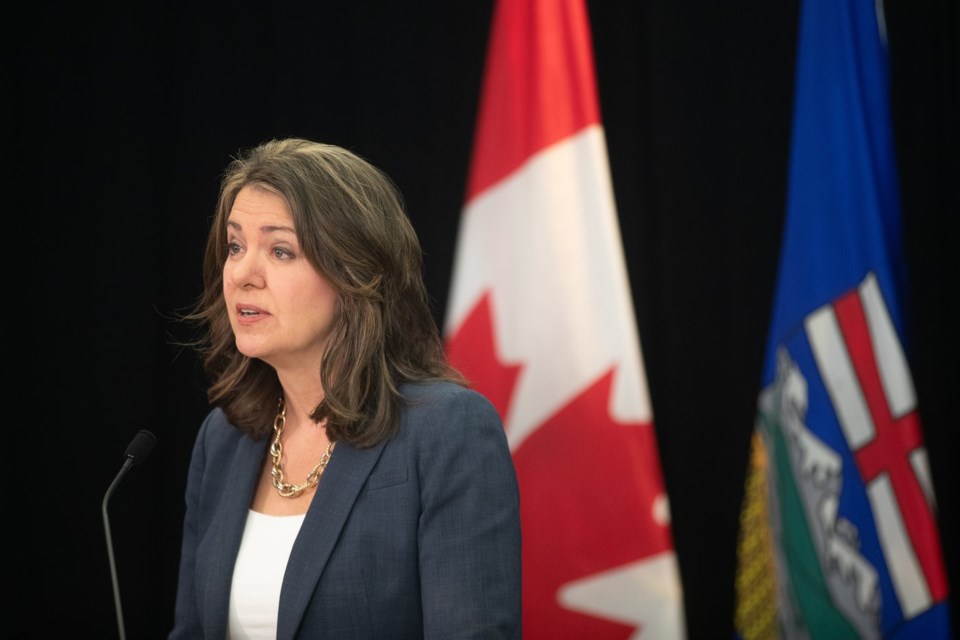EDMONTON — Alberta’s government is limiting legislature debate time to pass four controversial bills, a tactic the Opposition New Democrats say runs roughshod over the democratic process.
With the spring sitting set to wrap up this week, Premier Danielle Smith’s United Conservative Party government is passing motions to limit debate to one hour at each stage for the bills.
The NDP said Tuesday the tactic stifles elected members who won't have a chance to voice concerns from constituents about the proposed legislation.
Three of the bills have been characterized by critics, including rural municipal leaders, as an authoritarian power grab.
One would give the province the power to veto federal funding deals with cities, towns and universities, while another would give Smith’s cabinet authority to overturn local bylaws it finds unsavoury.
NDP Leader Rachel Notley said the UCP is now pushing legislation through at a record pace.
She said the average time for debate on a bill under the NDP, and the UCP when Jason Kenney was in charge, has now dropped by half under Smith.
"She's using this legislature to consolidate power in her office."
A third bill will push provincial elections into the fall, instead of the spring, and gives more authority to the province to step in on local responses to emergencies like wildfires and droughts.
The fourth will pave the way for Smith to re-haul the public health-care system, the most expensive line in the budget, creating four new bureaucracies that report directly to her health minister.
"The consequences people will feel, and the more they feel the consequences, the more they will probably care about the fact that it was jammed through in a way that has made Alberta probably the least democratic jurisdiction in the Commonwealth," said Notley.
Among the four, the only bill the government has moved to change in response to feedback has still inspired an ad campaign against it.
Alberta Municipalities - the organization representing towns, cities and villages - confirmed Tuesday one billboard asking if Albertans were consulted on the bill is being displayed across the street from the legislature.
Government house leader Joseph Schow dismissed the Opposition's concerns, saying the NDP doesn't want to offer input on the bills and just wants them scrapped.
"The NDP has shown zero interest in helping us on legislation.”
The government used its majority in the house to reject a string of amendments proposed later Tuesday by the NDP.
However, Schow said there are other ways to get feedback from Albertans, including town halls.
"This isn't the House of Commons, we're not gonna give at least 40 hours of debate again. We're not going to let them hold it up," he said.
Schow also rejected the idea that public feedback was being ignored, even though every riding in Edmonton is represented by the Opposition.
"We have lots of stakeholders that we meet with regularly here in Edmonton, whether they support us or not," he said.
Since the UCP took power under Kenney in 2019, the special time limit has been invoked 54 times, compared to four times under the NDP’s four-year mandate.
The government is now on pace to use the power 18 times this session, since Smith won last year's election.
The legislature sitting is scheduled to finish Thursday, but it could see members break for the summer as early as Wednesday.
This report by The Canadian Press was first published May 28, 2024.
The Canadian Press


